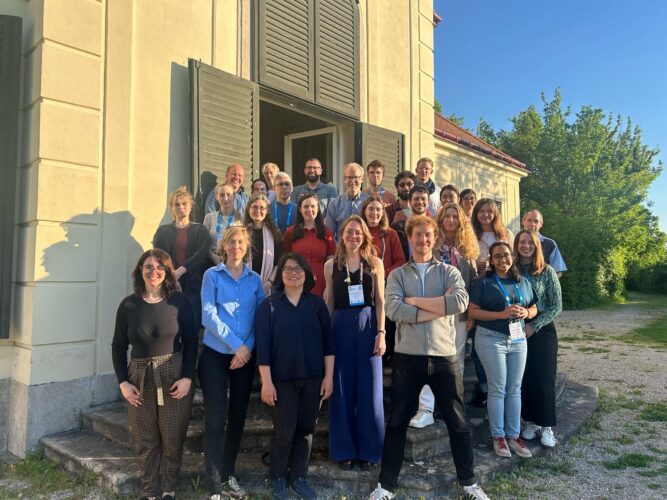Risk-KAN Symposium 2025 Charts a New Course for Multi-Hazard Risk Research

The first Risk-KAN Symposium, held on April 28, 2025, at the International Institute for Applied Systems Analysis (IIASA) in Laxenburg, marked a major milestone in advancing transdisciplinary risk research. Bringing together researchers, practitioners, and stakeholders, the event launched Risk-KAN’s new leadership structure and working groups, while setting a forward-looking agenda for addressing systemic and compound risks in a changing climate.
A central theme was the urgent need for risk science to engage directly with decision-makers in policy, industry, humanitarian response, and communities. Participants reaffirmed Risk-KAN’s mission to co-design research with those affected by risk and to serve as a hub for inter- and transdisciplinary collaboration across multiple hazards.
From Open Science to Strategic Structures
While Risk-KAN has supported open science through webinars and participation in forums like EGU and AGU, the symposium highlighted the need for more durable structures. Proposals included co-supervised PhDs and postdoc fellowships to foster cross-group collaboration, potential building blocks for new funding initiatives.
Emerging Themes from New Working Groups
Several working groups presented fresh research directions:
-
Climate, Disasters, Health, and Well-being (led by Martha Vogel) aims to link health outcomes to climate drivers through improved data and projections.
-
Climate Risk Modelling for the Financial Sector (led by Jana Sillmann) seeks to bridge gaps between climate science and financial risk analysis by aligning terminology, methods, and policy priorities.
-
Nature-based and Community-led Adaptation (led by Nicole van Maanen) focuses on evaluating the effectiveness of Nature-based Solutions and community-led approaches, particularly in regional contexts.
Each group plans ongoing engagement through seminars, publications, and contributions to major conferences like EGU.
Multi-Hazard Risk: Rethinking Science-Policy-Practice Interfaces
A high-level panel, led by Robert Šakić Trogrlić, addressed the complexity of multi-hazard risks. Panelists, including experts from the Zurich Foundation, Red Cross 510, WCRP, and VU Amsterdam, emphasized the need to move beyond siloed hazard models toward integrated, dynamic, and locally grounded approaches.
Challenges highlighted included limited data integration, static vulnerability assessments, and over-reliance on complex or opaque modeling. Tools like the Climate Resilience Measurement for Communities were cited as promising for combining quantitative and qualitative insights.
Panelists called for greater humility in scientific claims, stronger partnerships with Global South actors, and the use of storytelling to translate complex risks into actionable strategies.
Looking Ahead
Risk-KAN’s expanded working group structure will enable it to respond more effectively to emerging risks. Future plans include cross-cutting initiatives, such as summer schools, joint research, and thematic workshops, to strengthen collaboration across the network. IIASA expressed commitment to hosting the Risk-KAN Symposium as an annual event, anchoring long-term progress.
DATE
June 24, 2025AUTHOR
Kai KornhuberMarleen de Ruiter
Reinhard Mechler
Robert Sakic Trogrlic
Sophie Bujis
SHARE WITH YOUR NETWORK
RELATED POSTS
Report Out From 2022 Forum on Scenarios for Climate and Societal Futures